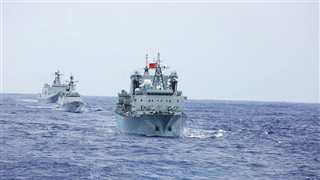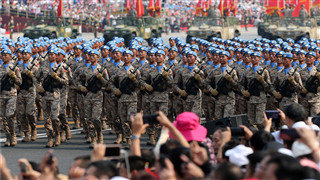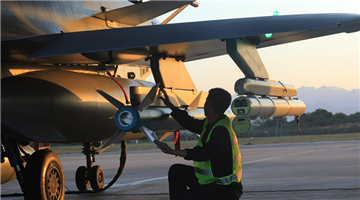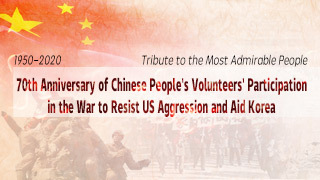By Chen Yang
Media reports show that Joe Biden expressed Washington's commitment to applying Article Five of the Japan-US Security Treaty to the Diaoyu Dao and its affiliated Islands when he spoke with Japan's Prime Minister Yoshihide Suga over the phone as the US "president-elect" for the first time. Biden begins to make aggressive remarks about Diaoyu Dao even before he is officially announced as the US president. This signifies that the China-Japan relations may hit the skids again because of external factors.
Just as the "president-elect" who hasn't been officially sworn in yet, Biden's abrupt remarks didn't conform with international diplomatic protocol and surprised the public opinions. Yet considering his vice president experience in Obama’s Administration, Biden’s words came as no surprise.
When the then president Obama visited Japan in 2014, he explicitly said that Article Five of the Japan-US Security Treaty, which defined America's defense duty to Japan, applied to Diaoyu Dao, making him the first US president who made such a clear-cut statement about this issue. When Trump visited Japan in 2017, he made a similar statement. The latest statement made by Biden as the Democratic "president-elect" was just a continuation of the diplomatic thought of the Obama administration.
As a sophisticated politician, Biden knows very well that in the US-Japan relationship, what Tokyo cares most is American leaders’ commitment to applying their security treaty to the Diaoyu Dao, so he chose to declare his stance to Japan before he is officially sworn in, to consolidate bilateral relation while reinforcing his legitimacy as "president-elect".
Besides, the instigation by senior American officials has also fueled Tokyo’s ambition and confidence to confront Beijing on the Diaoyu Dao issue. For instance, anti-China forces in Japan have repeatedly clamored to land the island and build a lighthouse there. The Japanese government blatantly announced to "nationalize" Diaoyu Dao in 2012, sending the China-Japan relation into a nosedive. Washington has deliberately meddled in the Diaoyu Dao issue to drive a wedge between China and Japan and obstruct the normal development of their bilateral relationship.
At the moment, it's hard to say for sure what kind of China policy Biden will adopt after taking office. However, given his remarks about the Japan-US alliance and the Diaoyu Dao issue during his phone call with Suga and his experience during Obama's term, the Biden administration will probably continue the "Asia-Pacific rebalancing" strategy, actively engage in Asian-Pacific affairs, and encourage or allow Japan to confront China and make waves in the South China Sea, to curb China's rise.
Actually, Japan is, to some extent, willing to act as a US chess piece. With China's rise, Tokyo has been worried that Washington would place too much emphasis on China and ignore Japan in its Asia-Pacific diplomacy. When the then US president Obama gave the state of the union address in 2011, he repeatedly stressed China's competitiveness, while didn't mention Japan, which astonished the Japanese political circle. Therefore, Japan has a mind to force the US to declare its stance by hyping up the Diaoyu Dao issue to tighten their relationship and obtain more attention from the White House.
Although Biden hasn't officially taken office yet, China-Japan ties that are being improved and developed continuously will probably fall into a dilemma again owing to the interference by the Biden administration in the Diaoyu Dao and other issues. We must bear in mind that the downward trend of China-Japan relations in 2012-2017 was partly because the Abe government took a series of moves that sabotaged bilateral friendliness and partly because it was eager to serve as a pawn for Washington's "Asia-Pacific rebalancing" strategy.
The improvement of China-Japan relations doesn't come easy. Both countries should cherish and jointly maintain it. We hope the Japanese side work with China towards the same goal and properly handle our disputes to open up new prospect for bilateral ties.
The author Chen Yang is a guest researcher of Liaoning University Institute of Japan Studies. This article is originally published on china.com.cn, and is translated from Chinese into English and edited by the China Military Online. The information, ideas or opinions appearing in this article do not necessarily reflect the views of eng.chinamil.com.cn.











